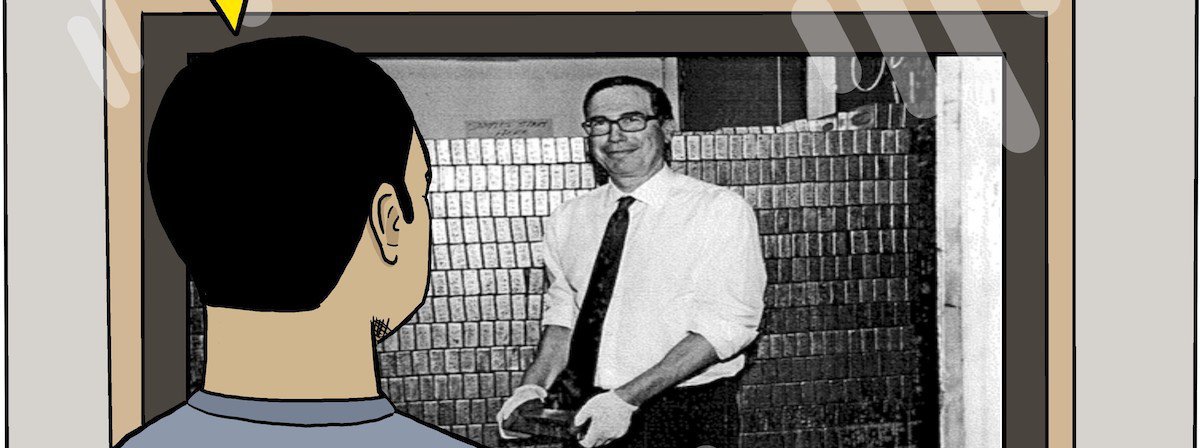A newsroom collective publishes a database spanning 70 years of sexual abuse at Boys and Girls Clubs across the country. Idaho plans free workshops on public records and open meeting laws. And the University of Connecticut issues $966,000 in parking tickets and fees for one year.
See a great use of public records we missed? Send over your favorite FOIA stories via email, on Twitter, or on Facebook, and maybe we’ll include them in the next round-up. And if you’d like even more inspiration, read past round-ups.
Thousands of documents gathered in a database of abuse connected to Boys and Girls Clubs
Seven journalists in Hearst Connecticut Media newsrooms spent six months, more than three thousand hours of work, and over 3,000 dollars to file 100 Freedom of Information Act requests about cases of child sexual abuse connected to the Boys & Girls Clubs of America.
The investigation found 95 civil and criminal cases, at least 18 still pending, of alleged sexual abuse involving staff, volunteers, religious leaders, and other members of Boys and Girls Clubs. These cases spanned 33 states over more than 70 years. In some instances, leadership at the clubs were aware of abuse and did not report it or adhere to safety guidelines.
The investigative team published a separate article detailing how they gathered the documents from Freedom of Information requests and how the process often differed between states. The team said the six month search was “not a simple undertaking.”
Because each state and municipality handles requests differently due to different laws and policies, the team’s ability to access the court records varied wildly. In some states, like Florida or Connecticut, court records were often available online for little or no cost, but access varied significantly even in the same state.
In many cases, the reporters had to pay significant fees to search for records with no guarantee of finding responsive documents. The team spent over 3,000 dollars in search fees alone, and sometimes resorted to sending journalists on cross-country flights because “flying a reporter from the East Coast to the west to dig through California court archives for three days was less expensive” than paying the fees.
The investigative team gathered and mapped these cases into an online database, with each incident linking to an article with a summary of the case. The team paid significant attention to language describing the incidents clinically and clearly as abuse, and attempted to “convey the seriousness of the incidents while not re-victimizing survivors of abuse.” Information pertaining to survivors of abuse, such as names and identifying details, was not given unless granted permission.
In a statement released after the article was published, the Boys and Girls Clubs clarified the organization’s policies on reporting and tracking abuse allegations. Clubs are required to report “critical safety incidents” to the national organization, and they do not keep a public database of abuse allegations surrounding clubs.
You can read the full article on the Connecticut Insider.
Idahoans, save the date: Three public records how-to sessions this October
Idaho Attorney General Lawrence Wadsden, along with the non-profit coalition Idahoans for Openness in Government, is planning a series of free public workshops on the state’s Public Records Act and Open Meeting Law. The workshops are open to the public, feature light food, and will take place in McCall, Boise, and Nampa later this month, according to a press release put out by the Attorney General’s office.
The series of three-hour workshops is meant to “educate local government officials, journalists and the public” on these laws “in an entertaining way.” Those wanting to attend are asked to RSVP to contacts listed in the release for each event.
The Attorney General and the Idaho non-profit have conducted 46 of these seminars across Idaho since 2004.
You can read the full release and find specific dates for events on the Office of the Attorney General’s website.
University of Connecticut issues just over $966,000 in parking violations for 2018
A University of Connecticut alumnus filed a FOIA request to see how many violations the school’s Parking Services department handed out in 2018. When he received the request back, those violations added up to almost one million dollars in potential fines, which includes some warnings and violations that were successfully appealed.
The Daily Campus, UConn’s student-run newspaper, reported they received data from 2019 graduate Colin McNeil after he filed the request.
“Whether or not their bad reputation was deserved, I never felt they were transparent about what they did,” McNeil said.
McNeil wondered if appealing a ticket actually did anything, or if certain cars got more tickets than others. More than half of all ticket appeals in 2018 were successful, meaning the actual amount charged to students was less than $966,000. However, the actual volume of these appeals was low, with only 19 percent of tickets appealing their violations.
About one tenth of all tickets for the year were posted during the first week of classes at UConn in the fall. Most of the tickets were warnings. Violations were more frequently issued on Mondays than any other day of the week.
Parking Services declined to comment for The Daily Campus, but later responded to articles from other outlets.
You can read the full article on The Daily Campus.
Read a great FOIA-based news story we should highlight? Let us know and maybe we can include it in our next roundup! Send it over via email, on Twitter, or on Facebook.
Image is “Smoke Sunrise over Boise Idaho” by Charles Knowles and licensed under CC BY 2.0




